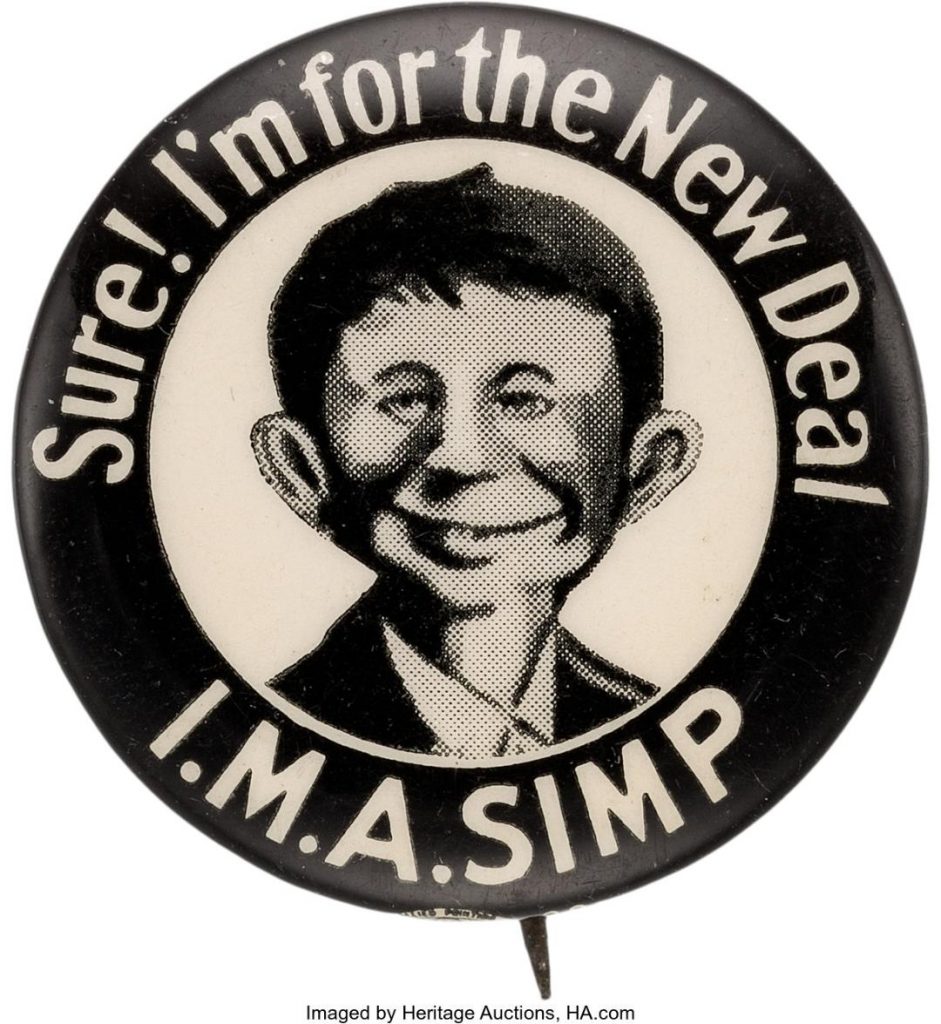
By Jim O’Neal
In September 1940, The New York Times surprised many readers when it announced it would support Wendell Willkie for president. It was a critical time for America as Nazi Germany had swept across the democratic nations of Europe and soon would threaten England’s weak defenses. Once that domino fell, the United States would be exposed to direct attacks via the eastern routes of the northern Atlantic Ocean. It would also dispel the long-standing fallacy that our two great oceans provided insurmountable defenses.
While conceding that both presidential candidates were experienced leaders who recognized the magnitude of the threat and, short of direct intervention, clearly understood the major role America must ultimately be forced to play, Willkie was favored over FDR since his extensive business experience would make him better prepared to provide a more robust defense of America. His production experience would be invaluable to gear up the industrial base that would be required. In this role, Willkie was the professional and Roosevelt clearly the amateur.
There was also an almost unspoken concern about the next president being tough enough to defeat an enemy that had demonstrated a level of ruthlessness and cold-blooded efficiency rarely seen in modern times. Maybe it was the wheelchair that was discreetly hidden or the soft, cozy fireside chats to bolster morale during seven years of hard economic times. But FDR’s smiling, cheerleading style faded in comparison to Willkie’s tough talk about “sweat and toil,” the emphasis on self-sacrifice and the radiant confidence to rebuild our earlier superiority.
The Times had supported FDR in 1932 and 1936, but the fiscal policies of the New Deal had failed disastrously and the national debt had more than doubled in seven years. A continuation would lead the country to the precipice of bankruptcy. Looking back, it is now obvious that these concerns were totally misjudged. FDR turned out to be a wily, tough executive who managed Winston Churchill and Joseph Stalin with superior strategic skills with the courage to hammer out agreements without blinking. The United States war machine cranked out planes, tanks and military men at a remarkable rate. The public support was overwhelming as the entire nation joined in. American tobacco dropped a color and advertised “Lucky Strike Green Has Gone to War.” In the process, a new era of fiscal strength evolved and the gloom of the Great Depression faded in the glare of Rosie the Riveter’s sparks. War bond parades blossomed and my family stored bacon fat in coffee cans without really knowing why. I traded comic books for butter coupons and we started eating something called “oleomargarine.”
But in 1940, breaking the precedent of no third term established by George Washington in 1796 was viewed as duplicitous. Earlier, FDR had declared, “Last September, it was my intention to announce clearly and simply at an early date that under no conditions would I accept re-election.” Now, this had morphed into merely: “He had no wish to be a candidate again.” Clearly, it was a bit of political spin that fit the revised situation. In the defeat of FDR and election of Mr. Willkie, there was an opportunity to safeguard a tradition with the wisdom of long experience behind it.
Fortunately for America, the primary issue in the campaign was staying out of war and the isolationist crusade lead by the America First Committee was having a dramatic effect on the nation. Many leading figures across a broad political spectrum vehemently demanded that America stay out. Famous aviator Charles Lindbergh was perhaps the most influential voice heard. FDR was again his usual cunning political self and promised the American people that American boys would not be fighting in any “foreign wars.” That was enough to allow him to win a substantial victory in 1940 and a coveted third term. Naturally, when the Japanese attacked Pearl Harbor on Dec. 7, 1941, that eliminated the FOREIGN war angle commitment and Americans were eager to seek retribution against all enemies.
An interesting epilogue to 1940, when FDR defeated the only presidential candidate with no government experience, was the death of Wendell Willkie in 1944 at age 52. He had poor health as a result of a poor diet, incessant smoking and hard drinking. Had he defeated FDR in 1940, he would have died right after D-Day but before the heavy fighting in the Battle of the Bulge, when victory was not yet assured. However, his VP running mate, Senator Charles McNary of Oregon, had died eight months earlier and for the only time in history, we would have been forced to elevate the secretary of state to president!
 Intelligent Collector blogger JIM O’NEAL is an avid collector and history buff. He is president and CEO of Frito-Lay International [retired] and earlier served as chair and CEO of PepsiCo Restaurants International [KFC Pizza Hut and Taco Bell].
Intelligent Collector blogger JIM O’NEAL is an avid collector and history buff. He is president and CEO of Frito-Lay International [retired] and earlier served as chair and CEO of PepsiCo Restaurants International [KFC Pizza Hut and Taco Bell].
